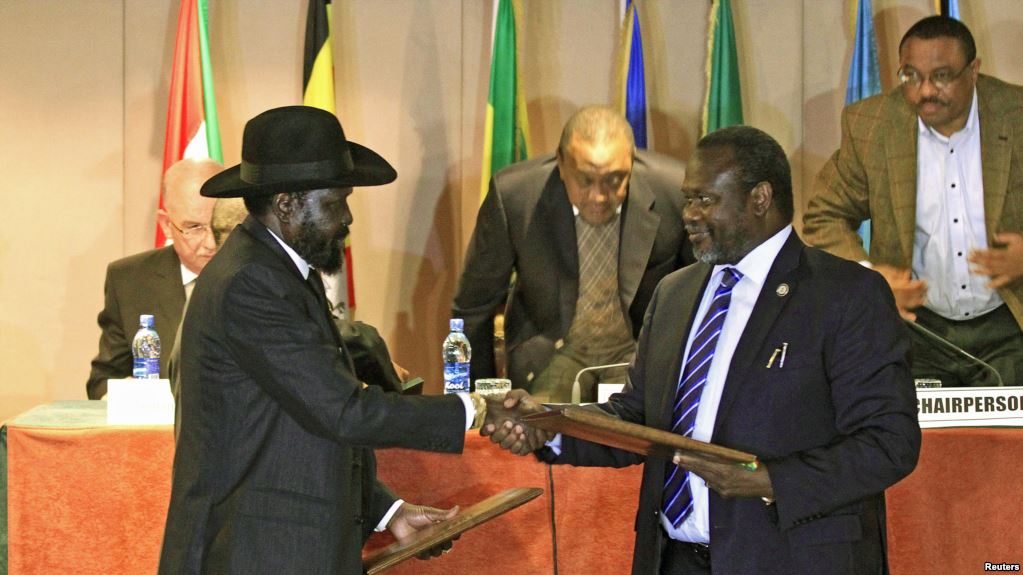US frustrated by ‘lack of progress’ in S. Sudan peace deal


By FAUXILE KIBET
The United States has expressed frustration over “lack of progress towards” the implementation of the South Sudanese Peace agreement.
It however stated that it remains committed to working with regional leaders to bring peace and stability in the youngest East African state.
“We are deeply frustrated with the lack of progress toward the agreement, and we must ensure our shared efforts reflect the urgency of the situation,” US Secretary Mike Pompeo said in a statement.
Mr Pompeo observed that the only path towards attaining lasting peace in South Sudan was through a negotiated arrangement for an inclusive transitional government that reflects South Sudan’s diversity and that provides checks and balances on political and economic power.
He revealed that the United States was in the process of undertaking a comprehensive review of all its assistance programs in South Sudan saying that while humanitarian efforts were crucial, such assistance should not contribute to or prolong the civil war.
“Included in this review will be the U.S. support for the Joint Monitoring and Evaluation Commission (JMEC) and other mechanisms intended to support the 2015 peace agreement known as the Agreement on the Resolution of Conflict in South Sudan (ARCSS),” he said.
The Agreement on the Resolution of the Conflict in the Republic of South Sudan (ARCSS) was signed in Addis Ababa in August 2015 under the auspices of the Intergovernmental Authority on Development (IGAD).
The Joint Monitoring and Evaluation Committee is constituted under Chapter VII of the ARCSS and is responsible for monitoring and overseeing the implementation of the Peace Agreement.
It reports directly to the Heads of State and Government of IGAD.
NO LONGER INCLUSIVE
Mr Pompeo further observed that the Transitional Government of National Unity in South Sudan is no longer inclusive and that forced exile of key leadership representatives who signed the ARCSS further demonstrates the Kiir regime’s cynical repudiation of the peace process.
“The promotion of UN-sanctioned individuals to senior government positions, such as Jok Riak to Chief of Defense Forces, demonstrates the South Sudanese Government’s disdain for international norms.”
He said that United States will condemn any unilateral effort of the current Government of South Sudan to extend its power through sham elections, the legislature, or continued military offensives.
“Only an inclusive, negotiated agreement is acceptable as a means to extend the South Sudanese Government’s term. The Government of South Sudan has lost credibility, and the United States is losing patience,” he added.
Mr Pompeo expressed disappointment that the South Sudanese government which was supported to attain its independence in 2011 by the United States and regional partners has failed to fulfill its intended function of ensuring peace and prosperity of its people.
“Seven years later, the leaders of this country have squandered this partnership, pilfered the wealth of South Sudan, killed their own people, and repeatedly demonstrated their inability and unwillingness to live up to their commitments to end the country’s civil war. The result is one of Africa’s worst humanitarian disasters.”
He also noted that the December 2017 cessation of hostilities has never been enacted as fighting across the country has increases and that famine is looming once again in multiple areas of South Sudan, and more than seven million people will face life-threatening hunger in the coming months.